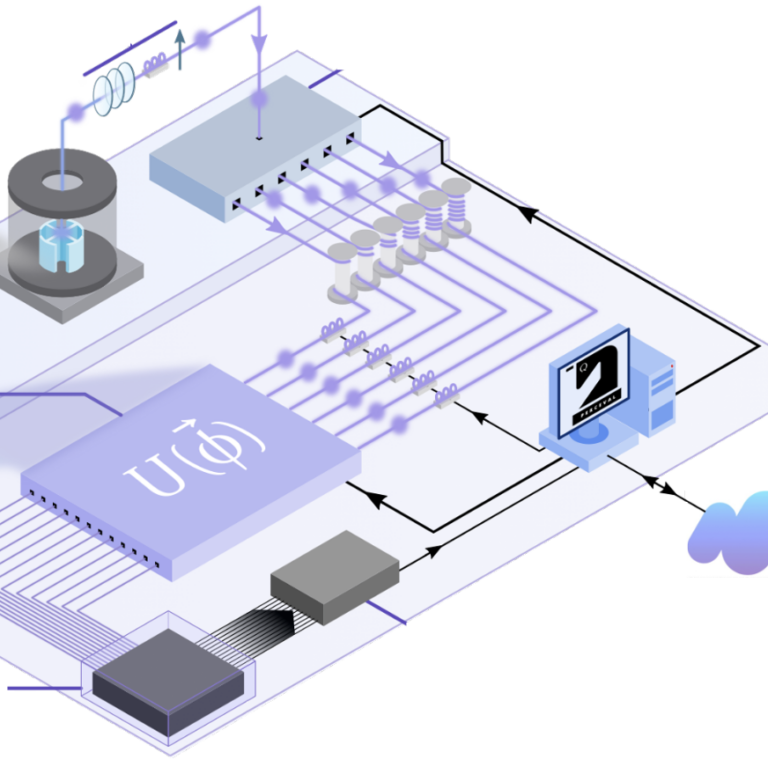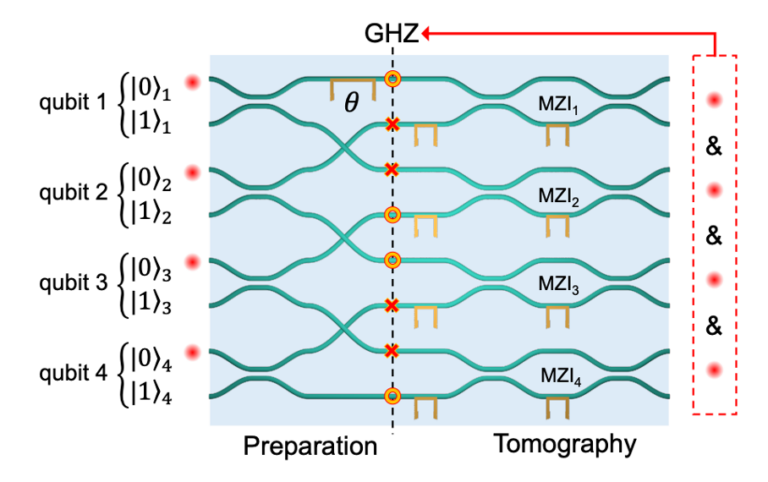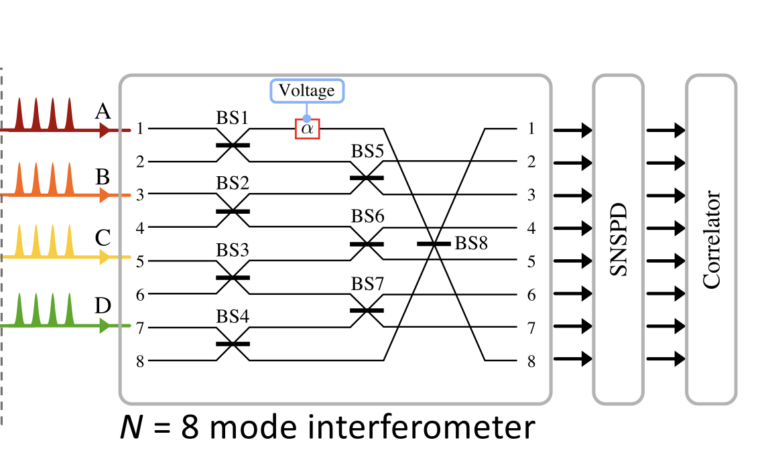General purpose on-chip manipulation
In collaboration with Quandela, our team helped develop a versatile quantum computing prototype accessible via the cloud, utilizing a high-efficiency quantum-dot single-photon source and a universal linear optical network on a reconfigurable chip.
This system features hardware error compensation through a machine-learned transpilation process and supports remote operations for various quantum computations. Our device achieves gate-based computation fidelities of 99.6±0.1% for one qubit, 93.8±0.6% for two qubits, and 86±1.2% for three qubits. Additionally, we implemented a variational quantum eigensolver to calculate hydrogen molecule energy levels with chemical accuracy and demonstrated a six-photon boson sampling and three-photon entanglement generation on this platform, marking significant advancements in photonic quantum computing.
Reference:
- N. Maring et al., “A versatile single-photon-based quantum computing platform,” Nature Photonics 18, 603 (2024).
4 photon GHZ state generation
Our team successfully demonstrated the on-chip generation of four-photon Greenberg-Horne-Zeilinger (GHZ) states using a quantum-dot-based photon source coupled with a reconfigurable glass photonic circuit. This setup allowed us to achieve an experimental fidelity of 86.0±0.4% and a purity of 76.3±0.6%, employing full quantum state tomography for accurate density matrix reconstruction. By leveraging a semi device-independent method to validate the entanglement, we achieved a significant Bell-like inequality violation, strengthening the credibility of our quantum states for practical applications. Moreover, we implemented a four-partite quantum secret sharing protocol directly on the chip, demonstrating the technology’s potential for robust quantum communication and computation.
Reference:
- M. Pont et al. (2022). “High-fidelity generation of four-photon GHZ states on-chip,” npj Quantum Information 10, 50 (2024)
Cyclic integrated interferometer
We developed a method to quantify the genuine indistinguishability of multiple photons using a cyclic multiport interferometer. This setup enabled us to measure quantum interference fringes related to n-photon indistinguishability.
In our study, we achieved an indistinguishability of up to 0.81±0.03 using an eight-mode interferometer fabricated via femtosecond laser micro-machining and photons from a quantum dot source. This approach provides a systematic way to assess photon coherence for optical quantum computing applications.
Reference:
- M. Pont et al. (2022). “Quantifying n-Photon Indistinguishability with a Cyclic Integrated Interferometer,” Physical Review X, 12(3), 031033.


